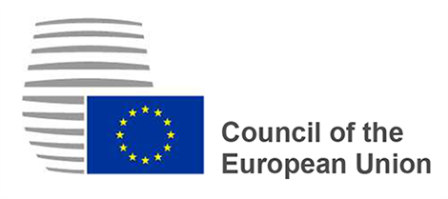A NEW approach to drugs across the 27 member states of the European Union looks set to provide a platform for continental cannabis reform.
Earlier this month The Council of the European Union (EU) agreed an updated policy paper entitled ‘Council conclusions on human rights-based approach in drug policies’.
Driven by Czechia in its six-month stint as president of the European Union, the paper will lend immediate support to both its, and Germany’s moves towards regulated, adult-use markets.
As well as acknowledging the right of countries to decriminalise personal possession and protect the health of its citizens, it ticks all the re-active diversity, equality and inclusivity boxes, whilst also adopting a new, and more muscular approach to drugs policy and human rights.
National Priorities And Needs
One of the most significant of these is for the first time articulating the potential for nation states ‘to design and implement national drug policies according to their priorities and needs’.
Barcelona-based international drug policy researcher Kenzi Riboulet-Zemouli, said: “It’s great to have this new policy document which will strengthen the positions that have been developing in recent years. It will provide an important structural platform for progressive reform in the medium and long-term.”
While the EU may have already outlined these positions orally, for instance at the UN Commission on Narcotic Drugs, this is the first time they have been articulated in policy from the Council of the EU.
The Council of the EU, which is composed of representatives from the governments of each of the Member States, is the primary legislative body of the EU.
Mr Riboulet-Zemouli added: “This is the result of negotiations between all 27 governments of the EU and in representing the many discussions and shared knowledge of its members is a sign of significant progress in drug reform.
“This represents real progress across Europe and signifies the dawning of a more enlightened approach to drugs.”

In Germany, the new policy paper is already being welcomed as a boost towards its proposed adult-use legislation.
German cannabis lawyer Kai-Friedrich Niermann said: “It is well known that the EU, including the Council, has long been calling for a new drug policy that takes health protection and human rights into account. Now it comes to the litmus test.
“The fact that the European Council is now remembering these principles once again is certainly helpful. In its reform, Germany will therefore be able to refer precisely to these principles of EU drug policy, which have been debated for years.
“In this respect, the publication of the paper at this time is certainly helpful.”
EU Council Policy
The nine-page long document includes some 13 action points and around 30 basic principles. It sets out its stall by declaring:
(We) Invite EU Member States to further support the development and implementation of evidence-based policies and interventions that put human rights at the centre of drug responses, whilst countering crime and ensuring public safety and security, sustainable and viable livelihoods and the health of individuals, families and communities across the EU.
In relation to member states acting independently it says: NOTING also that the UN system common position on drug policy acknowledges that the UN drug control conventions allow countries to design and implement national drug policies according to their priorities and needs, consistent with the principle of common and shared responsibility and applicable international law.
It continues by highlighting issues related to human rights, decriminalisation, de-stigmatisation and international cooperation, amongst others.
In a press release Czech national coordinator for anti-drug policy, Jindřich Vobořil said: During our presidency, we did not have small goals, however, at the ministerial level, we finally managed to find agreement on a document that significantly contributes to a paradigm shift in drug policies from the senseless criminalization of sick people to a rational drug policy and greater humanization of policies within the EU.
“Globally, the war against drugs cannot be won and rather brings stigma, many millions of sick, imprisoned and executed people. With this document, the EU is committed to the effort to change policy globally and focus it more on people’s health.”
Pan-European Moves To Reform
Germany had been expected to publish its draft adult-use cannabis bill by the end of the year, but it now looks like this will be delayed to the spring.
Czechia, Malta, and Luxembourg have all been working closely with Germany on ways to frame more liberal Euro-wide cannabis legislation in recent months.
And, while it has been shown that nation states can draft their own drug policies in line with the international conventions there is still much discussion in relation to the potential for the EU to tether or delay these objectives.
Mr Niermann added: “The EU has continuously talked about a new and sound approach to drug policy on a number of occasions.
“But, it is interesting that it is now reiterated by the Council of the EU, which might be an indication that the issue of cannabis legalisation is now on top of the desks of the governments of the EU member states.”
However, he did sound a note of caution and also issued a call to arms, adding: “But, it is so far only words, governments who intend to legalise must be bold and start the process by passing a respective act, which legalizes the whole supply chain.
“Otherwise we will never know which interpretation of the ‘international obligations’ should be preferred.”
In 2020 the Council of the EU adopted a drugs policy up to 2025 and it is also working on a new policy for the latter part of the decade, to be unveiled in two years time.























